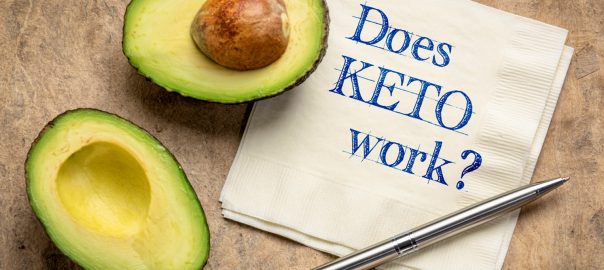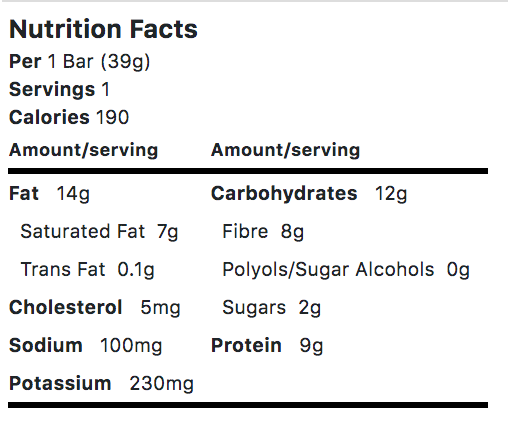
Keto & Low Carb Diet FAQs
Frequently Asked Questions About the Low Carb Diet
Whether you are just starting a low carb diet or wanting to make sure you are still on track, check out the answers to these frequently asked questions. We break down the top 7 most asked questions about low carb & keto diets!
Starting a low carb diet can be overwhelming at first. We understand the challenges that come with any major lifestyle change, which is why we want to clear up some of the confusion and misconceptions surrounding the low carb lifestyle. In this article, we answer frequently asked questions about low carb and ketogenic diets to help get you started or to make sure you stay on track.
With a lower carbohydrate intake, our body’s metabolic system switches into a fat-burning mode rather than a carbohydrate-burning mode. As with any diet, there are skeptics and advocates. The truth is, there isn’t one right diet for every person on the planet. The low carb diet has great benefits for some people, including those with diabetes or neurological disorders, and for others, it isn’t the best route. We hope to answer your burning questions to help you determine if the low carb diet is something that works for you and your body. As always, check in with your health care practitioner before making any drastic changes to your diet.
Disclaimer: The information in this article is not medical advice. A low carb diet may not be suitable for you. Consult your health care provider before making any changes to your lifestyle or use at your own risk.
Frequently Asked Questions:
- What happens in the first few weeks of the diet? What is keto flu?
Before starting a low carb or ketogenic diet, be aware that your body will undergo some serious changes at first. This is what happens when our body gets used to using a completely different source of energy, fat. Although everyone will have a slightly different experience depending on your previous eating habits and natural metabolic rate, there are some commonalities among first-time low carb dieters. These effects have also come to be known as the “keto flu” which may last 1-2 weeks before your body gets used to its new dietary regimen.
When we reduce our carb intake, our body starts burning through extra stores of glucose in the body. Glucose is stored in the body along with water molecules, so many people experience weight loss within the first several days of starting a low carb diet, although this is mainly water weight. The real fat burning begins after we have overcome the keto flu!
Some of the symptoms of keto flu include:
- Headaches
- Brain fog
- Dizziness
- Fatigue
- Nausea
- Constipation
- Difficulty sleeping
- Sugar cravings
To minimize these effects, make sure to increase your water and electrolyte intake during the initial transition, and throughout the rest of a low carb or ketogenic diet. Staying hydrated and providing your body with the right minerals it needs (sodium, potassium, magnesium, calcium, etc.) can make you feel better overall and specifically relieve symptoms such as headaches, nausea and constipation. We love this naturally flavoured spring water, Innate!
Sugar cravings can be some of the most difficult side effects to deal with, because they can hinder our ability to stay on track of our new low carb diet. Do your best not to give into these, as they are the natural result of the brain withdrawing from its usual source of energy, glucose (which is found in sugar and carbs). If your cravings become too hard to manage, try reducing your carb intake gradually instead of going cold turkey. These may make other keto flu symptoms persist longer, but they will be more manageable. If you are interested in learning more about this, see our complete guide to managing sugar cravings.
- Can medications interfere with weight loss?
Certain medications can interfere with a low carb or ketogenic diet, specifically antipsychotic and anticonvulsive drugs. In addition, if you are taking insulin for diabetes, your dose will likely need to be lowered once you start lowering your daily carb intake. If you have any existing medical conditions, please see your doctor before starting a low carb or keto diet as they can advise the best process for you.
- Should I use a carb counting app?
Apps that track your macronutrients are especially helpful on a low carb or keto diet and are a great tool to use! In order to successfully achieve your goals, you should avoid guessing how much you are eating. Particularly in the case of a keto diet, it is very important to consume the right amount of carbs in order to stay in ketosis; going slightly over your daily allowance can throw you out of ketosis and delay your weight loss progress or other health goals.
While it’s pretty easy to figure out the amount of carbs, fat and protein in packaged products by looking at the nutrition facts table, things like fruit, vegetables, cuts of meat, and other non-packaged foods may be a bit harder to track. For these foods, we recommend investing in a kitchen scale that can help you measure your food precisely. Also keep a journal (digital or physical) that can help you keep track of your macronutrients instead of trying to keep count mentally.
- What are net carbs and how do I calculate them?
Not all carbs are the same! Carbs exist in things like bread, pasta and sweets, but also in fruits and vegetables. These carbs are processed by the body differently, and some will pass through the system completely unnoticed (such as sugar alcohols) and therefore will not count towards your daily carb intake.
Counting net carbs is so easy! It just involves subtracting fibre and sugar alcohols from the total amount of carbohydrates in a given food. Fibre and sugar alcohols will not release glucose into the blood when consumed, and therefore have no effect on ketosis or insulin levels. Fibre can actually help stabilize blood sugar levels to regulate insulin production. The other types of carbohydrates include sugars and starches, which should be avoided on a low carb or ketogenic diet.
Below is an example of a typical nutrition facts table and a formula for how to calculate net carbs.
Net Carbs = Carbohydrates – Fibre – Polyols/Sugar Alcohols
= 12g – 8g – 0g
= 4g
Here, the total net carb count is 12g – 8g = 4g, of which 2g are sugar (the rest are starches).
- Is the low carb diet the same as the keto diet or paleo diet?
Both keto and paleo are low-carb diets, but all three of these diets look very different.
A low carb diet is any carb-restricted diet, typically allowing for the consumption of 50-150g of carbs per day. The amount of carbs one can consume on a low carb diet may differ depending on individual goals and health conditions. It is common for diabetics to lower their carb intake since their body cannot process carbs properly due to insufficient levels of the hormone, insulin. You may also see people dieting for general weight loss who remove or reduce carbs from their diet. This is because carbohydrates that are not burned (via exercise or our bodies’ natural metabolic rates) get stored as fat. When we cease consumption of carbs, our body is given the opportunity to burn through these stores of fat, thus allowing for weight loss.
A ketogenic diet takes low carb one step further by promoting a specific metabolic state known as ketosis. This is where the body completely relies on fats (ketones) instead of carbs (glucose) for energy. In order to achieve this metabolic state, one must consume less than 50g of carbs a day. In addition, it is recommended to reduce protein consumption to about 20-25% of your daily caloric intake and mainly rely on fats (70% or more of the diet).
Paleo follows an entirely different philosophy, although it also happens to be low in carbs. The paleolithic (paleo for short) diet is based on the belief that we should feed our bodies only foods that our cave-dwelling ancestors consumed, as this was the foundational diet that led to our evolution. While this is somewhat controversial as humans have evolved greatly since then and we have access to many more food resources now, this diet is often praised for its focus on real, whole foods. The diet is mainly composed of lean meat and fish, fruits, vegetables, nuts and seeds (anything obtained from hunting and gathering). It limits foods that we obtained through farming practices that emerged about 10,000 years ago. These include dairy products, legumes and grains. However, those on a paleo diet may still consume things like potatoes and starchy vegetables, which are high in carbs. There is no room for packaged or processed foods on a paleo diet.
- Do I have to watch my calorie count on a low carb diet?
If your goal is weight loss, then the answer to this question is yes. The traditional approach to losing weight is to achieve a caloric deficit, which is a state in which the body has burned more calories than it has consumed. Even if we are completely sedentary, our bodies still naturally burn calories through metabolic processes. You can calculate your Basal Metabolic Rate (BMR) to figure out how many calories your body burns at rest (i.e. not including any physical activity). There are several online BMR tools that can give you an estimate of your BMR, but they should be taken with a grain of salt as it is hard to accurately predict. In addition, you should figure out how many calories a day you burn from exercise (remember that even things like walking or taking the stairs count, you don’t necessarily have to workout every day). This should give you an idea of the threshold at which your body will begin to burn through extra stores of fat, resulting in weight loss.
The low-carb diet simply concerns your carb intake, and this does not necessarily mean that you need to count your calories if your goal is something other than weight loss. While many low carb foods will resultingly be low in calories, be mindful of low carb, high fat foods as these can be very calorically dense. Avoid over-eating these types of foods – although it is generally harder to overeat when you are eating nutritious foods. Overeating is more common with high carb, high sugar foods because they are burned very quickly and provide little nutritional value. Eating enough fibre and protein during the day is key to satiation to prevent overeating.
- Can somebody on a vegetarian or vegan diet do a low carb diet?
Yes! One of the main concerns about vegetarian and vegan diets is getting sufficient protein. However, on a low carb or keto diet, protein isn’t a huge focus anyways, comprising only about 20% of the diet. You can certainly obtain this amount of protein from vegetarian and vegan sources such as:
- Eggs (vegetarian)
- Dairy (vegetarian)
- Whey protein
- Tofu, tempeh and edamame
- Nuts
- Pumpkin, sunflower, sesame, chia and hemp seeds
- Nutritional yeast
- Spirulina and other seaweeds/algae
Be mindful that other sources of vegetarian/vegan protein such as legumes and whole grains would not qualify as low carb or keto-friendly. Many of the above-mentioned protein sources are also rich in healthy fats, which are an essential part of a low carb or keto diet. Whether you are a low carb vegetarian, vegan, or otherwise, be sure to include plenty of plant-based sources of fats such as nuts, seeds, avocados, olives and plant oils in your diet. Also, it is best to avoid large amounts of animal fat and protein as these can trigger stress in the body (things like bacon, sausages, refined butter and fatty cuts of beef). Opt for organic, grass-fed, farm-raised and wild-caught animal proteins and substitute in a vegan or vegetarian option once a week to get some variety in your diet and reduce bodily stress.
If you are interested in learning more about a vegetarian or vegan approach to a low carb or keto diet, check out our full article on Plant-Based Keto Diets.
Stay Connected
We hope that this article answered some of the most common questions surrounding low carb and ketogenic diets. If you have any other questions, ask us on Facebook or Instagram! We also love to hear about your experience with The Low Carb Grocery, so if you’d like – please leave us a Google Review with your experiences!
The Low Carb Grocery offers a Weekly Newsletter, too, so please subscribe if you’d like to be the first to know about updates, latest low carb and keto products and sales!







